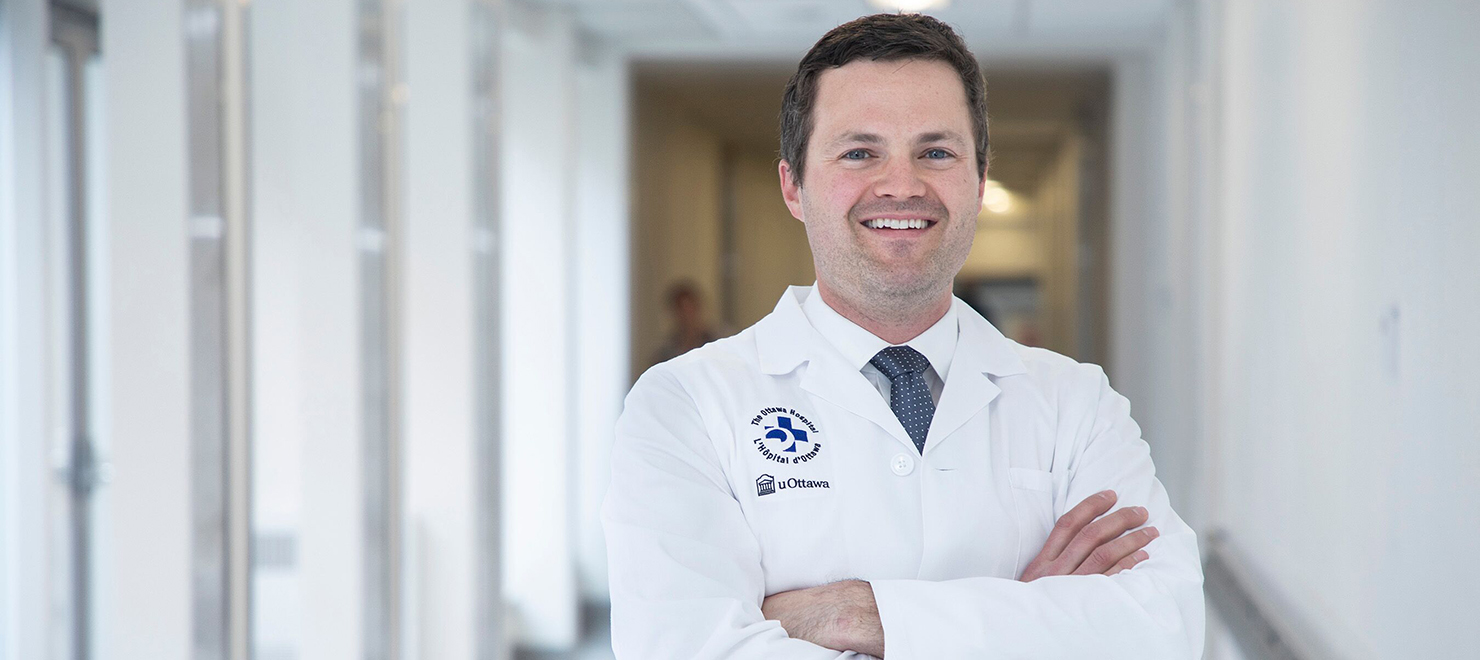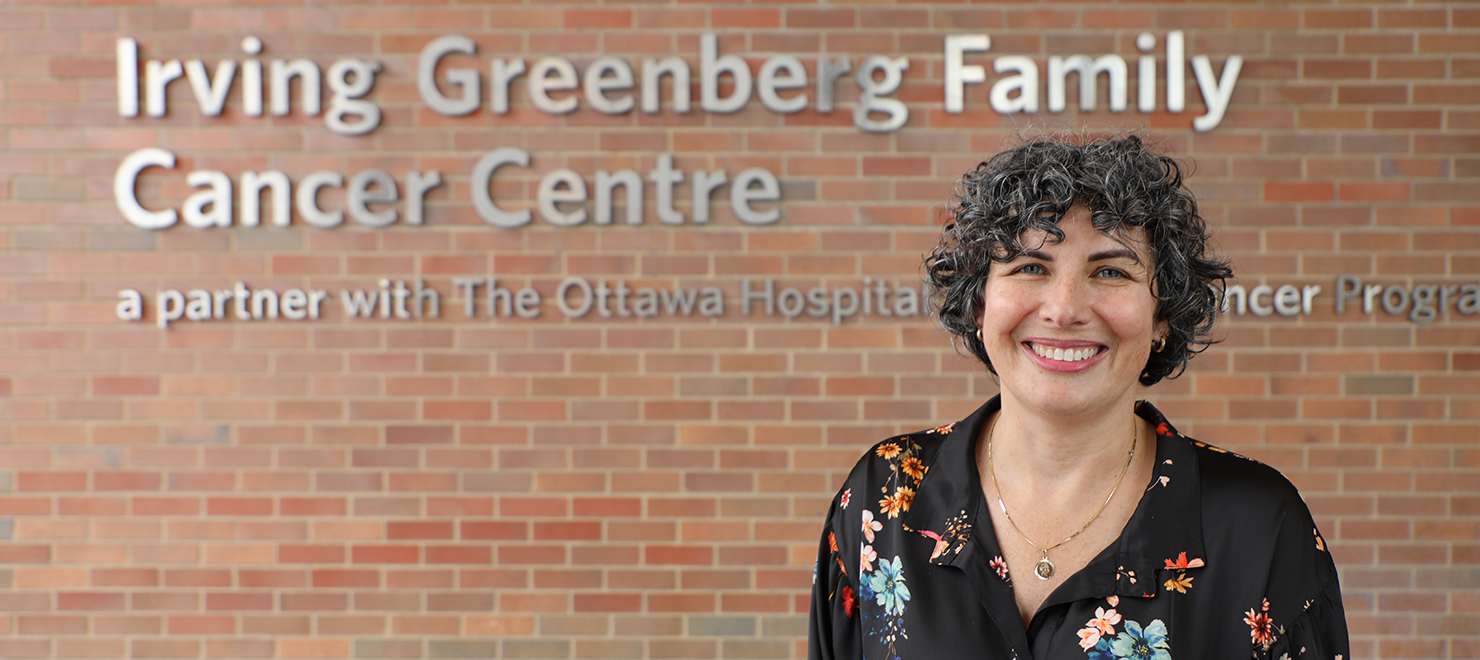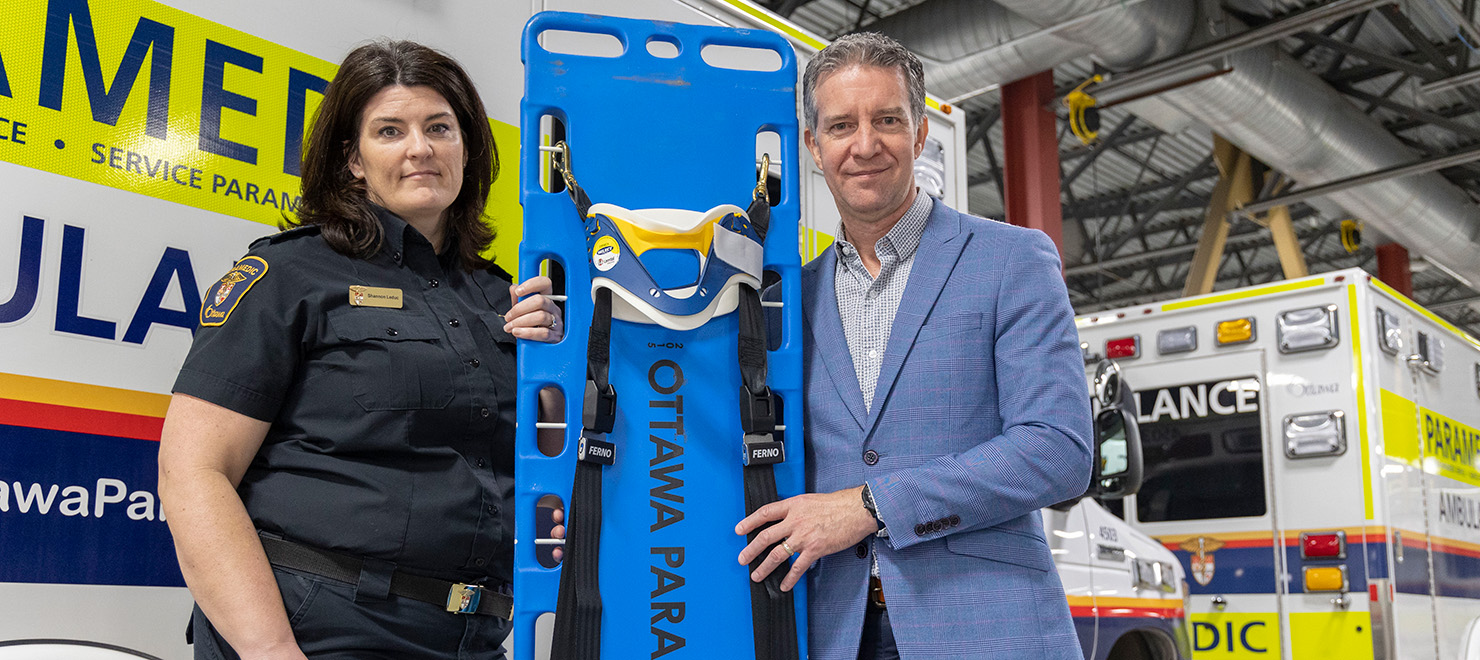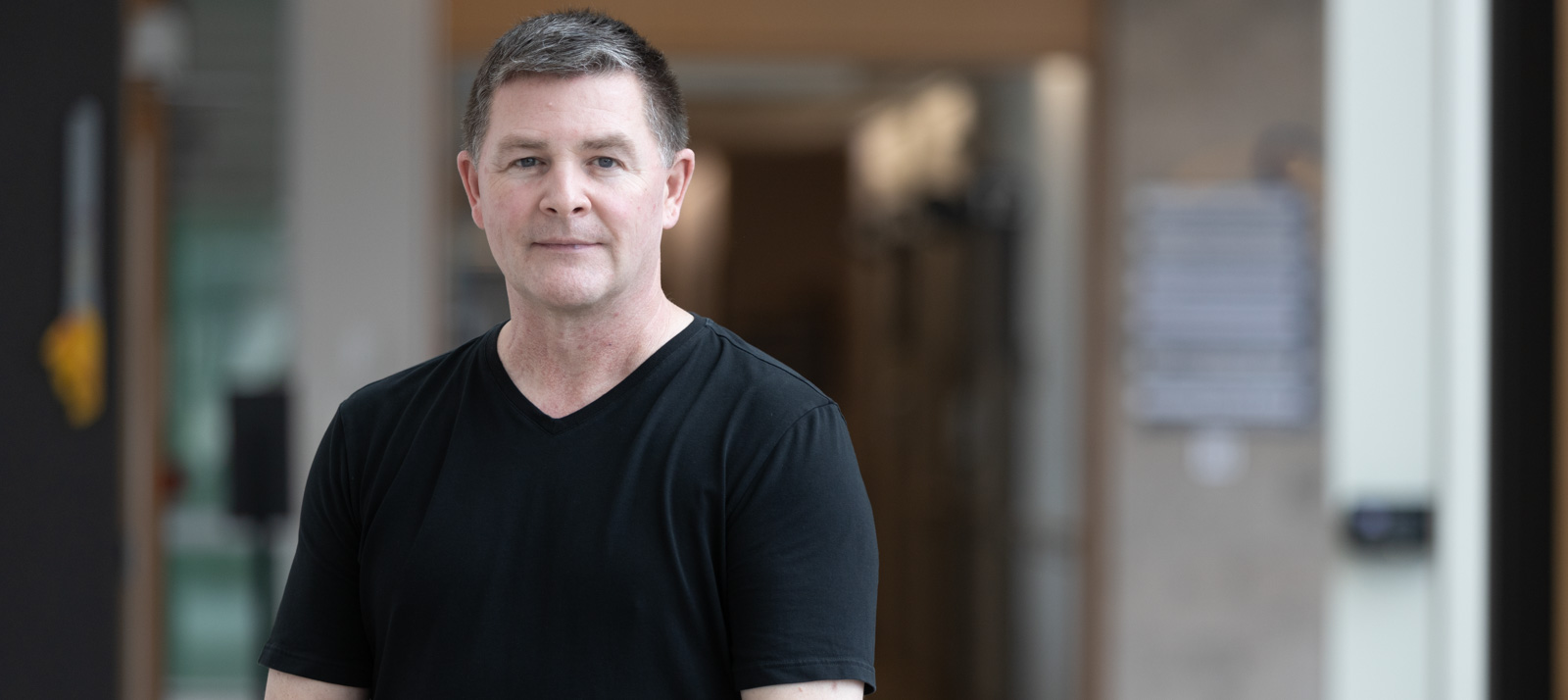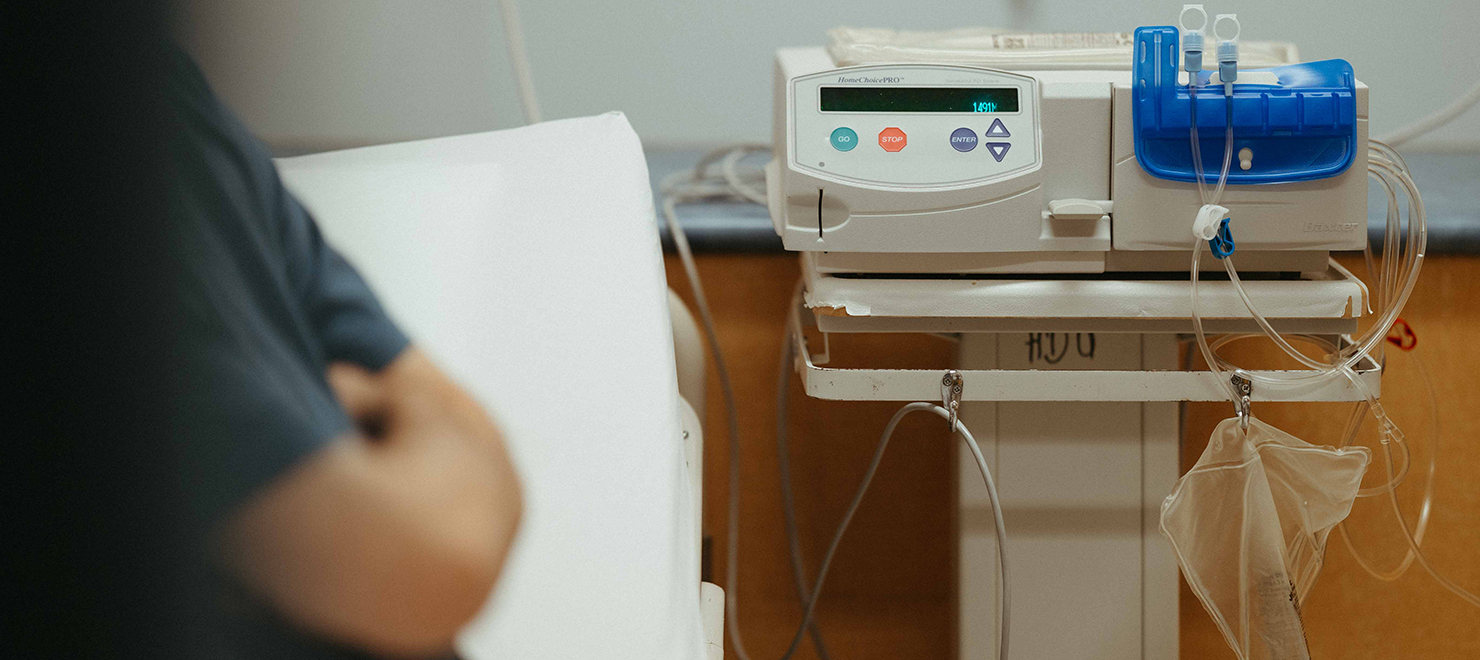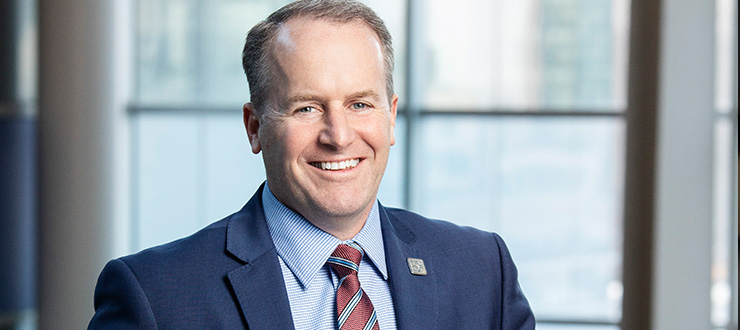
Stabilizing the response to COVID-19, gaining ground on the new Civic development, advancing research and innovation, supporting a culture of wellness – Cameron Love, President and CEO of The Ottawa Hospital, has a clear vision for the future.
A. Our most pressing short-term goal is to stabilize our response to COVID-19 and gradually increase our scheduled services and programs across our campuses at The Ottawa Hospital. This is particularly important for services that experienced a significant slow-down in the spring, like surgery.
We also need to make sure we are prepared for a second and third wave. By prepared, I mean both making sure our community has access to the care they need, and making sure that our staff and physicians feel prepared and safe to respond to what COVID-19 brings us next.
In the medium term, we will continue building our momentum for the new Civic development. It’s a priority for two reasons: it will provide our community with even better access to world-class care, and it will modernize how we deliver health care in this region. COVID-19 has shown us how antiquated some of our infrastructure is, so it is imperative that we modernize that infrastructure as soon as we can.
We will also be focusing on how we will move forward as an organization, and specifically how we create an integrated health-care model for the benefit of our community. We recently saw a great example of integrated care when staff and physicians went to long-term care homes in the region to help our colleagues in that sector. While it was a challenging set of circumstances, there is no question that the interventions of the staff and physicians from hospitals across the region improved the outcome of care for residents in these homes. Integration of care is a priority for the government and The Ottawa Hospital is well positioned through its regional collaboration and partnerships as well as through the local Ottawa Ontario Health Team to continue to lead this vision forward.
We also need to capitalize on what we’ve done with Epic. Launching Epic was not an easy journey, but if you speak to clinicians in the field, many have told me that they are happy that we had Epic to help respond to COVID-19. We’re moving toward having one integrated digital platform for health care in this region, and Epic will help us get there.
Finally, our most important priority is to make sure that our workforce is well and healthy. None of what we do is possible without our dedicated and committed staff and physicians. Your engagement and wellness are critical to our success as a compassionate care provider for our community.
A. The hospital has been committed to ensuring that all staff and physicians have the right tools, supplies, training and education to do their work safely. These are critical success factors in the response to COVID-19 and the future of The Ottawa Hospital, and they will continue to be areas of focus. But when we talk about the wellness of the people in this organization, as an organization, we need to support people in finding the balance between work demands and people’s personal lives. It’s not just about work. Its about balancing work and home life, whatever that may be.
An example is making sure it’s easy to schedule shifts, making sure we have enough staff in place so that we can relieve people, and promoting programs that will help people if they are not well physically, emotionally or mentally. It’s about making sure that managers and physician leaders know about the wellness programs and resources available so that they can communicate them to staff and physicians on the front lines. It’s also about creating a culture of wellness where everyone feels comfortable asking for help when they need it.
When you go through something like COVID-19, there is a huge variation in how people respond and what impacts it has on them personally and professionally. As an organization and as a community, it’s important that we listen to each other to understand what is needed for everyone to feel safe and well supported. It takes some openness on all sides, but it’s important that we all engage in that kind of supportive discussion.
When we talk about engagement, we need to think about our current workforce, but also the future generations of people who will choose a career in health care. We must think about what we can do as an employer to attract them into a caring and compassionate environment where they will have fulfilling careers caring for our community.
A. The bench and clinical research we do is focused around advancements in new treatments, new drugs, new technology, new models, and new approaches. Our research and innovation platforms are critical to our success in the future as it advances the health of our community through new discoveries and leads the evolution of health care for our country and humanity across the globe. We continue to be at the leading edge of research, and through the retention and recruitment of the best and brightest from around the world, and the innovation culture that exists at our hospital, the future of discoveries is very promising.
A. Our ability to provide exceptional service and world-class, compassionate care remains the same as always. What has changed is how we have adapted to meet the needs of our patients, families and staff as we respond to the pandemic. We remain committed to providing safe care, and we will always be here if you need us.
One thing that is quite clear is that we’re never going to return to exactly how things were before. What we’ve learned, as a result of responding to this pandemic, will reshape health care for the future. While our teams have shown incredible resilience to manage through the pandemic, they have also found ways to innovate. They have seized many opportunities to transform our programs and services, and have developed new ways of doing things that will not only benefit patients and families, but will help shape the future of the health-care system.
A. Our community knows that The Ottawa Hospital provides the most advanced programs and services to the sickest patients in our region, but the other thing I hope the community has seen is how proud we are to work with our partners like long-term care homes and other hospitals to support the health of this community as a whole.
When we talk about integrated care and the role our hospital can play, both in leading the way, and in supporting it, I want our community to know that we will keep contributing to the health of patients and families in this region through the services we provide, not just as a hospital, but as part of the health-care community.
COVID-19 has really shown the importance of The Ottawa Hospital in the health of this community. But what has also become clear is how important the community’s support is to the health of the hospital. I want to thank this community for rallying around us. Their messages of support and their donations have been so very important, and our hospital is very grateful. You can’t create a great health-care organization without the support of the community, and we are very fortunate to live in a great city where that support shines every day.

Support patient care and research at
The Ottawa Hospital
You might also like…
Do you have a surgery coming up? Here are five “prehab” tips to help you recover faster
You’ve probably heard about rehabilitation, but what about “prehabilitation”? Prehab is all about getting your body and mind in top shape before surgery so you can enjoy a smoother, quicker recovery. Discover five essential prehab strategies from researcher Dr. Daniel McIsaac.
By thinking differently, this research team is improving the lives of people with cancer
Taking a different approach to clinical trials, the REthinking Clinical Trials (REaCT) program aims to answer some of the most important and practical questions that affect both patients with cancer and our health-care system. Find out what sets REaCT apart and makes the program so special to participants like Beth.
Does this backboard look comfortable to you?
Imagine this: You’re flat on your back, strapped tight to a rigid backboard, unable to move at all. Fortunately, this is no longer the reality for most low-risk trauma patients when they’re brought to hospital in our province. Find out how researchers at The Ottawa Hospital teamed up with paramedics across Ontario to make the journey a lot more comfortable.
Ever have a tough time making a medical decision? These tools can help you
When faced with a medical condition, there may not be one clear path forward — but we have something to help you with that. The Ottawa Hospital is home to the largest collection of decision aids in the world, covering everything from various cancers to depression to allergies.
After a traumatic brain injury, this physician is on a mission to improve inclusion of docs with disabilities
Motivated by his own experience, Dr. Michael Quon has helped create a new accessibility and accommodation policy for physicians with disabilities in The Ottawa Hospital’s Department of Medicine.
The comfort of home: Home Dialysis Program empowers patients to live more independent lives
For people living with kidney failure, the most ideal form of dialysis treatment is done in the place where they are most comfortable—their home. Five years ago, we transformed our Home Dialysis Program, enhancing quality of life for our patients, welcoming more patients, and turning it into a model for dialysis programs across the province.


 To reset, hold the Ctrl key, then press 0.
To reset, hold the Ctrl key, then press 0.
